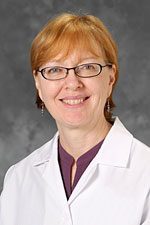I watched with interest and nostalgia as Cynthia lit up with enthusiasm when she discovered the concept and then power of “childbirth without fear.” I grinned in acknowledgment when the name Dr. Grantley Dick-Read was mentioned. Dr. Dick-Read was a British physician whose book “Childbirth Without Fear,” first published in 1942, was ridiculed by the medical community and relished by American women when they discovered its wisdom in the 1960s. Dr. Dick-Read was, no doubt, molded by his experiences with Britsh nurse-midwives in community settings such as we see in Call the Midwife.
During the 1950-70s in the United States, birth was ritualized into a mechanistic production controled by physicians in hospitals. Women were routinely shaved, given enemas and medicated during labor. Spinal anesthesia, episiotomies and forceps were routine for delviery. Birth plans? What!? Husbands in the delivery room? Ahem. No, not allowed. When I entered into the world of childbirth 40 years ago the consumer movement was reving up with the beginnings of community based childbirth education classes and demands from women for changes in childbirth practices to regain control. I remember one local hospital being disparagingly referred to as “Spinal City.” Slowly, with effort and from consumer pressure, practices have changed. Helping to open the door for nurse-midwives in the United States to practice within the medical community is one of the changes triggered by Dr. Dick-Read’s book and the childbirth education movement.
Although women have more choices for their birth experience today, I feel the emphasis on preparation for childbirth has been somewhat lost. Many women do not get access to all the options that a birth experience can offer. Nor are they adequately informed about risks of interventions. With controversy over risks of induction of labor and climbing caesarean section rates, there is new need for consumer childbirth education to be reemphasized and reinvented. The consumer cannot underestimate her power for change. As Cynthia’s smpathetic physician mentor, Dr. Latham said during the episode, “Knowledge is power.”
Finally, I cannot fail to comment on the reoccurring theme of compassion spanning this entire series. When the adoption case worker unsympatheticaly comments to a mother she views as abandoning her baby, “Isn’t it more a case of consequences? So much less palatable than the actions that led to them.” Our dear Sister Julienne responds, ”So let us be grateful that we are not faced with them and let us feel compassion for those who are.” Yes, indeed. Let us be grateful and let us feel compassion.
I would be interested to hear stories of how people obtained the birth experience they sought. What type of preparation did you have to do to achieve it?
 Deborah McBain (CNM, MS, BSN, RN) is a nurse-midwife who has practiced in Metro Detroit for nearly 20 years. McBain received her Bachelor’s Degree in Nursing Science from Wayne State University-Detroit, Master’s Degree from the Case Western University-Cleveland and midwifery education through Frontier Nursing Service.
Deborah McBain (CNM, MS, BSN, RN) is a nurse-midwife who has practiced in Metro Detroit for nearly 20 years. McBain received her Bachelor’s Degree in Nursing Science from Wayne State University-Detroit, Master’s Degree from the Case Western University-Cleveland and midwifery education through Frontier Nursing Service.
Read More About Deborah | Read All Posts by Deborah